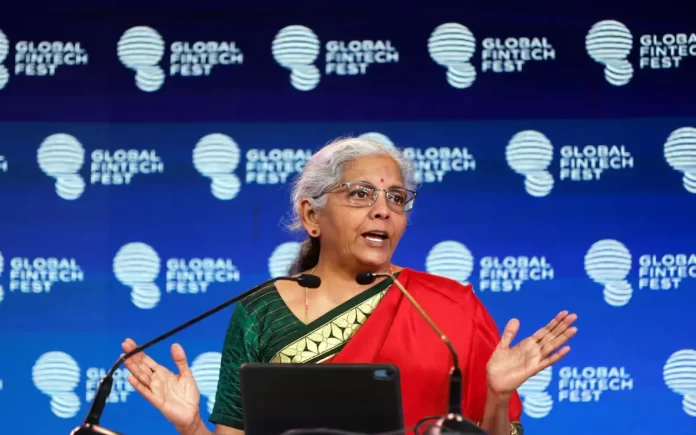New Delhi: Indian Finance Minister Nirmala Sitharaman emphasized the necessity for a more transparent political funding mechanism, following the Supreme Court’s declaration of the electoral bonds system as “unconstitutional”. While acknowledging the system’s advancements over previous methods, Sitharaman stressed the need for further transparency in party financing.
Sitharaman’s remarks came in response to the Election Commission’s recent disclosure of companies and individuals who had contributed significant sums to political parties through the now-scrapped electoral bonds system, which had previously shielded their identities from public scrutiny.
Addressing concerns about the system’s susceptibility to corruption and its alleged promotion of crony capitalism, Sitharaman defended her government’s 2017 initiative but acknowledged the imperative to learn from past experiences and enhance transparency measures.
Read More: Indian Navy Rescues Bangladeshi Ship from Pirate Assault near Somalia Coast
The electoral bonds system faced legal challenges from opposition lawmakers and civil society groups, who argued that it compromised the public’s right to know about political party finances.
In a statement at the India Today media conclave, Sitharaman remarked, “It is not a perfect system. But you moved from almost a wild law unto oneself kind of situation, where everybody did what they wanted. This is certainly not perfect. But one bit better. We have to introduce elements of lessons that we have taken from this, to make sure there is transparency.”
Read More: Indian Army Bolsters Border Security in Jodhpur with Six Boeing Apache Helicopters
Party funding in India has long been a contentious issue, with elections costing parties millions of dollars and funding sources often shrouded in secrecy. The electoral bonds system was introduced to channel funds through banks while protecting the identities of donors to safeguard them from potential targeting by rival political factions, as per the government’s assertion in 2017.
The recent disclosure of donor names revealed that several prominent Indian companies had contributed substantial sums over the past five years by purchasing bonds from the government-run State Bank of India (SBI).



